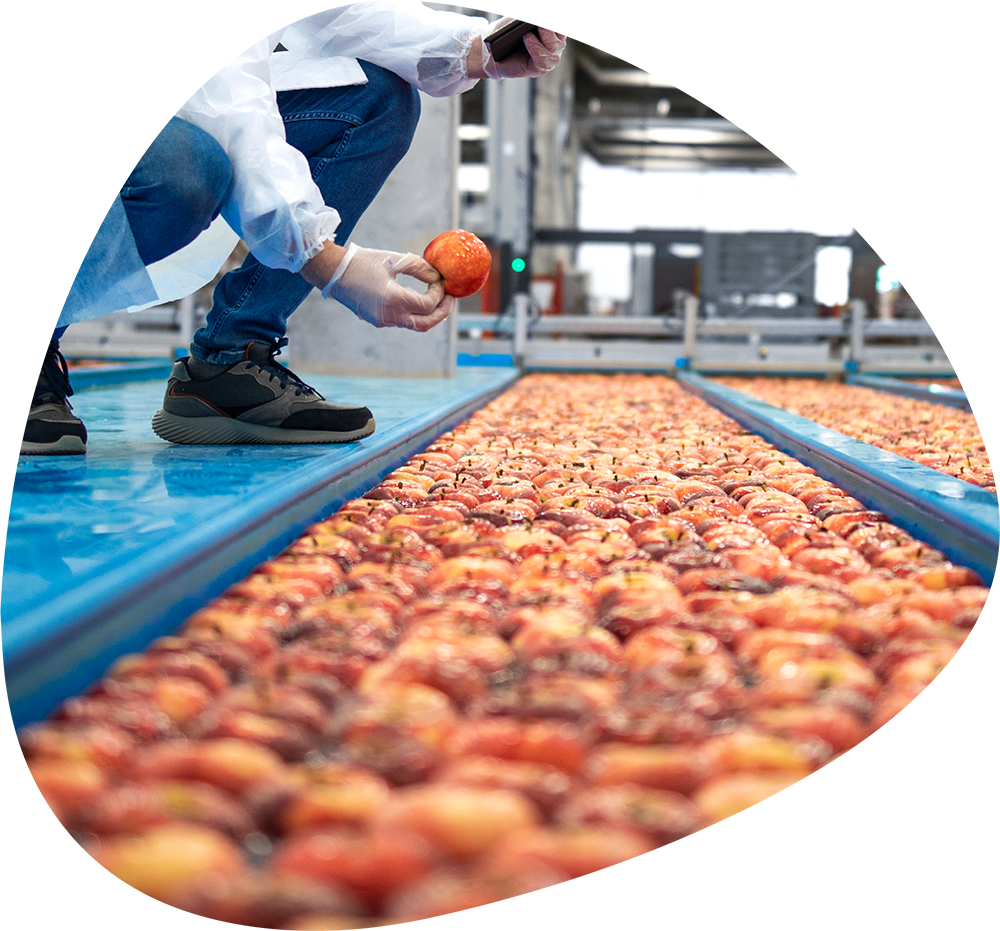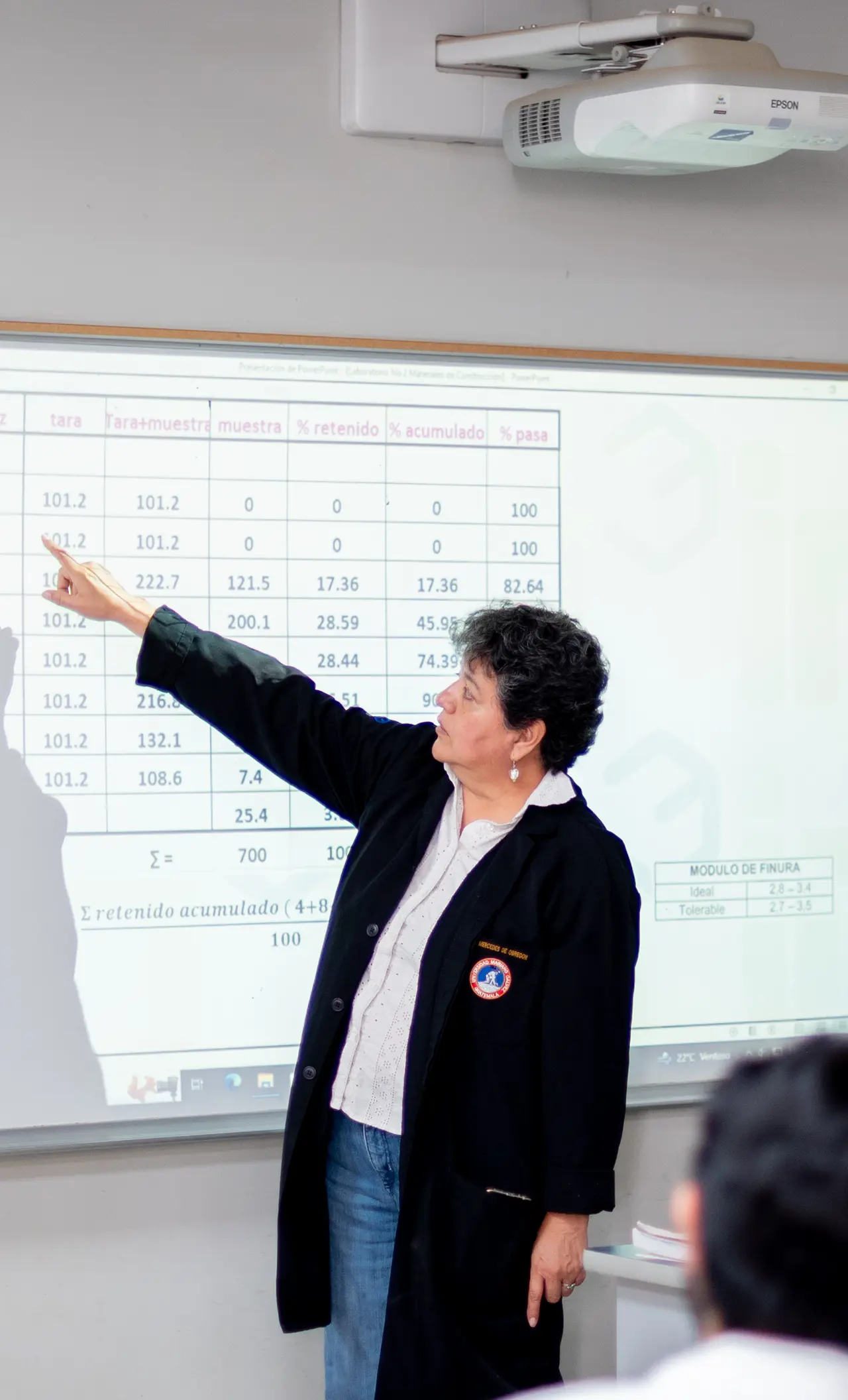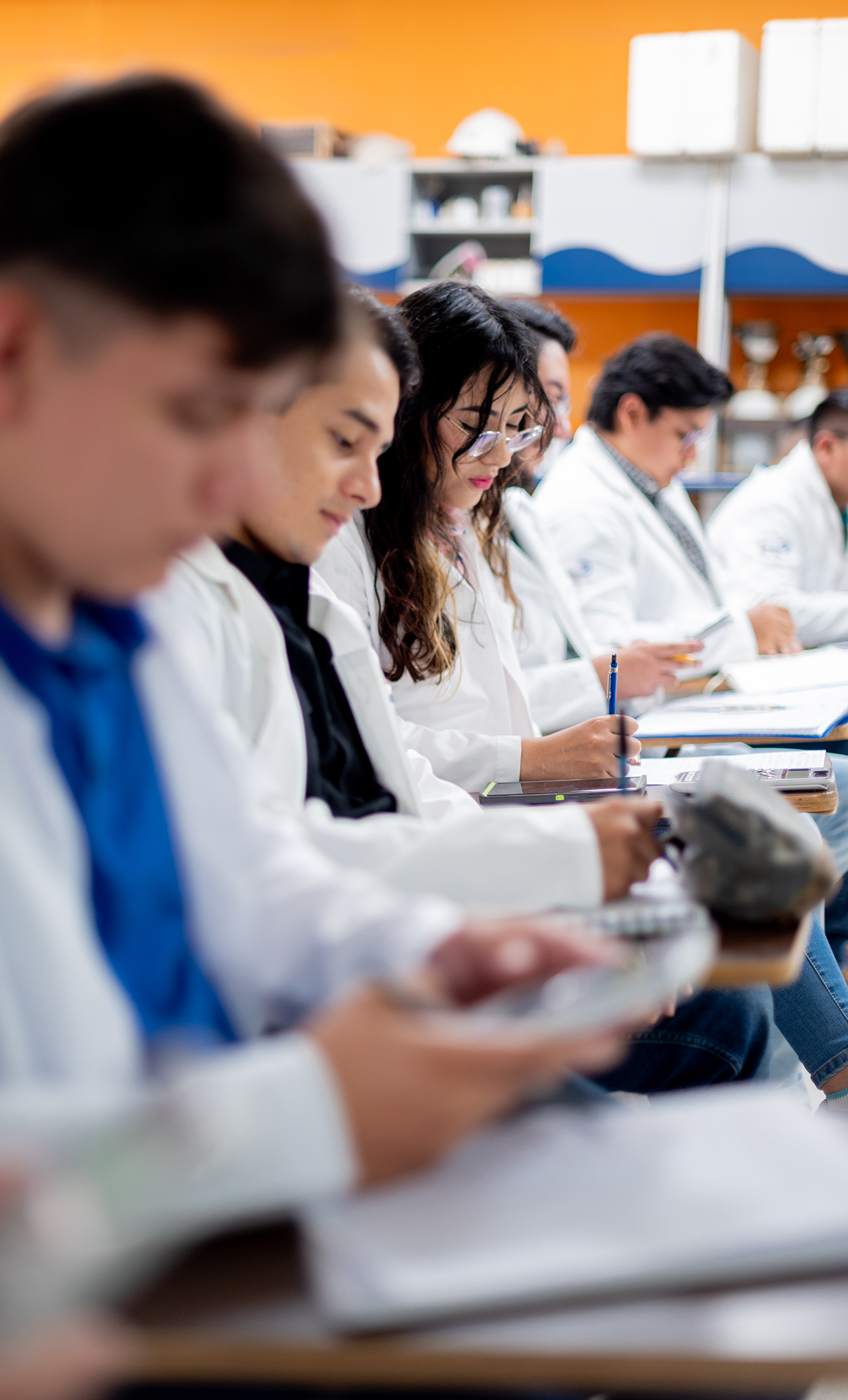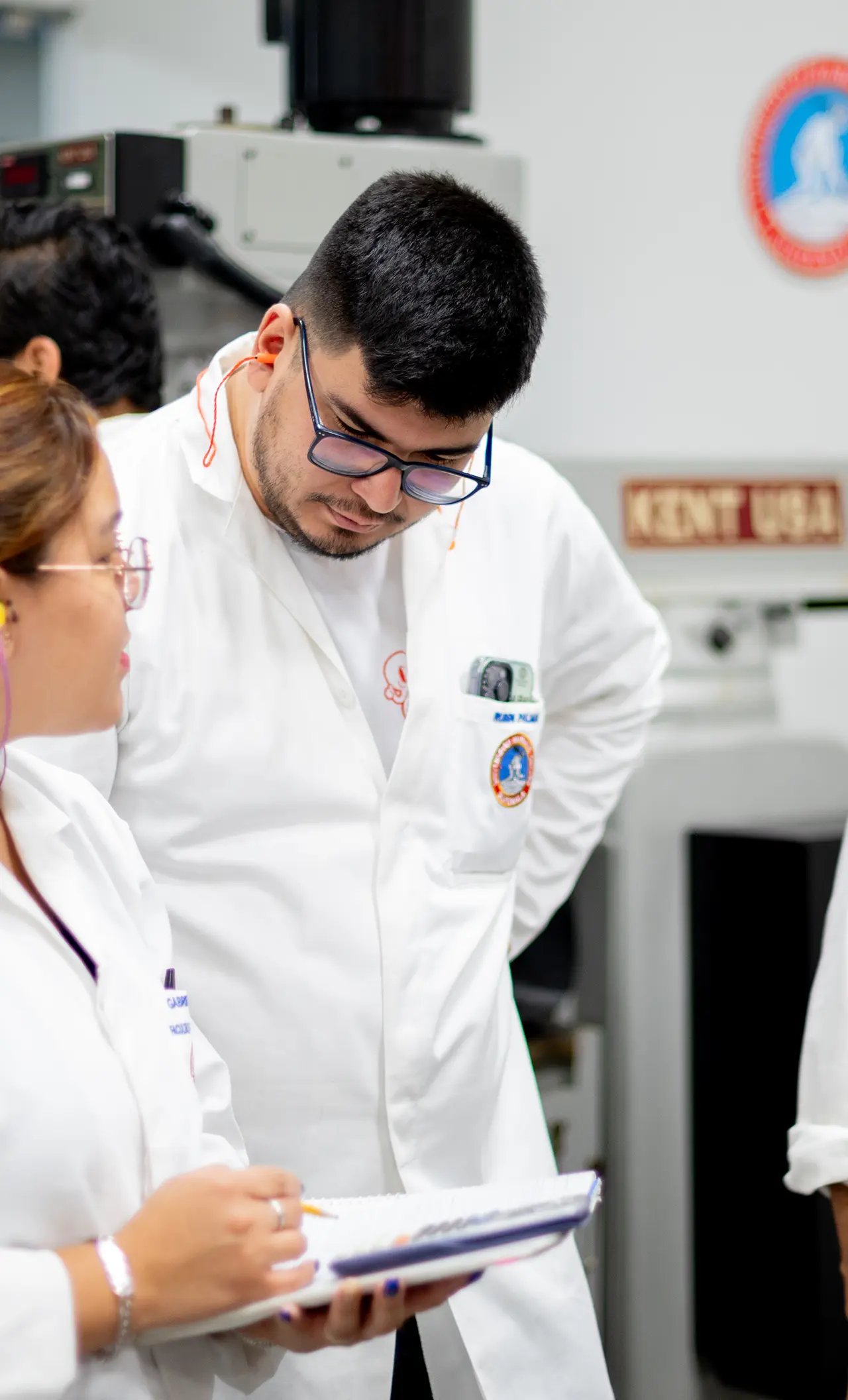
- Bachelor's Degree in
- Food Engineering
- Degree to be obtained
- Bachelor's Degree in Food Engineering
- Academic degree
- Bachelor's Degree
- Duration
- 5 years
- Modality
- In-person
- Schedule:
- Daily Morning Session
- Career description
-
The Food Engineering program provides the theoretical and methodological bases necessary for the search for process optimization, development of new products, with emphasis on quality and implementation of cutting-edge technologies for food preservation. It focuses on the study of food production, preservation and transformation processes. Students acquire knowledge in food science, microbiology, biochemistry, conservation, food technology, quality management, etc., which allows them to be involved in both food production and research and development of new technologies to conserve and optimize all operations in the food supply chain. In addition, to ensure food safety, as well as the safety of food products. The field of action of the food engineer of the Cambiar a Universidad Mariano Gálvez is wide and has a great impact on the population, being able to work in different sectors of the food industry, such as: food processing, sugar, meat products, dairy products, among others, performing different tasks such as production supervision, quality analysis, development of new products, etc.
- What will you learn during the program?
-
Over the course of your Food Engineering career, you will acquire a wide range of knowledge and skills essential to food handling and processing. You will learn about the chemistry and biochemistry of food, as well as processing techniques and equipment operation. In addition, you'll explore topics such as food safety, microbiology, product development, quality and quality control, nutrition, food law and sustainability. As you progress, you will have the opportunity to conduct research and work on projects that contribute to the development of innovative processes and quality food production. These skills will prepare you to address challenges in the food industry and contribute to the creation of safe, nutritious and environmentally sustainable food.
Gallery
AdmissionProfile
To be admitted to the School of Food Engineering, each applicant is required to have completed a high school program with a solid foundation in mathematics, physics and chemistry. In addition, it is essential that students be able to analyze information accurately, apply knowledge effectively, and communicate their ideas clearly both orally and in writing. It is essential to have a solid development of logical-mathematical thinking and outstanding analytical skills, which are crucial for making informed decisions. The ability to collaborate in teams, along with personal qualities such as honesty, respect and punctuality, are qualities we value in our applicants. It is necessary to have a positive approach, an entrepreneurial attitude and be willing to tackle challenges to explore new ideas and solutions within the field of Food Engineering.
Graduate'sProfile
The Food Engineer graduated from Universidad Mariano Gálvez de Guatemala possesses a broad capacity to develop in diverse fields of specialization within the career. This professional is deeply rooted in a solid social conscience, demonstrating a profound respect for biodiversity and actively promoting sustainable development in a global interdisciplinary context. All this will be carried out while applying and maintaining the values and principles that characterize Universiad Mariano Gálvez. The Food Engineer graduated from our institution is highly competitive and has acquired extensive practical experience using sophisticated and up-to-date equipment. These practical skills are directly aligned with the demands of the most influential companies in both the national and transnational markets.
Career Opportunities

A Food Engineering, given the skills and knowledge acquired during his stay at the University, is competent to work in different sectors of the food industry, such as:
* Food industry: food processors, sugar factories, meat products, dairy products, cereals, bakery processing, oils and fats, confectionery processing, horticultural products, etc.
* Research and development
* Quality control and quality assurance
* Food technology
* Nutrition and health
* Regulatory and compliance
* Consulting
* Education and academic research
Curriculum
| 1° Ciclo | ALGEBRA SUPERIOR | DESARROLLO HUMANO Y PROFESIONAL | GEOMETRÍA PLANA Y DEL ESPACIO | PROGRAMACIÓN PARA LA CIENCIA Y LA INGENIERÍA I | QUÍMICA INORGÁNICA I | |
|---|---|---|---|---|---|---|
| 2° Ciclo | ALGEBRA LINEAL I | CÁLCULO I | HISTORIA Y COMUNICACIÓN CIENTÍFICA | INTRODUCCIÓN A LAS CIENCIAS DE LA VIDA | NUTRICIÓN Y ALIMENTOS | QUÍMICA INORGÁNICA II |
| 3° Ciclo | ANÁLISIS QUÍMICO I | CALCULO II | CONTABILIDAD PARA INGENIEROS I | DIBUJO ASISTIDO POR COMPUTADORA | FÍSICA I | QUÍMICA ORGÁNICA I |
| 4° Ciclo | ANÁLISIS QUÍMICO II | BALANCE DE MASA Y ENERGÍA | CALCULO VECTORIAL Y MULTIVARIABLE | ESTADÍSTICA Y PROBABILIDAD PARA LA CIENCIA Y LA INGENIERÍA | FÍSICA II | QUÍMICA ORGÁNICA II |
| 5° Ciclo | BIOQUÍMICA | ECUACIONES DIFERENCIALES ORDINARIAS | ESTADÍSTICA INFERENCIAL | EVALUACIÓN SENSORIAL DE LOS ALIMENTOS | FÍSICA III | TERMODINÁMICA I |
| 6° Ciclo | BIOQUÍMICA DE ALIMENTOS | CONTABILIDAD DE COSTOS PARA INGENIEROS | FISICOQUÍMICA | FLUJO DE FLUIDOS | LEGISLACIÓN ALIMENTARIA | TRANSFERENCIA DE CALOR |
| 7° Ciclo | ANÁLISIS NUMÉRICO | CIENCIA DE LOS ALIMENTOS | ECOLOGÍA Y SOSTENIBILIDAD AMBIENTAL | INGENIERÍA ECONÓMICA | MANEJO DE SOLIDOS | MICROBIOLOGÍA DE ALIMENTOS |
| 8° Ciclo | CONSERVACIÓN DE ALIMENTOS | HIGIENE E INOCUIDAD DE ALIMENTOS | TECNOLOGÍA DE ALIMENTOS I | TOXICOLOGÍA DE ALIMENTOS | TRANSFERENCIA DE MASA I | |
| 9° Ciclo | ASEGURAMIENTO EN LA CALIDAD EN LA INDUSTRIA DE LOS ALIMENTOS | DISEÑO Y DESARROLLO DE PRODUCTOS Y PROCESOS ALIMENTARIOS | ING DE PROCESOS DE PRODUCCIÓN Y PRESERVACIÓN DE ALIMENTOS I | TECNOLOGÍA DE ALIMENTOS II | TECNOLOGÍA DE EMPAQUES EN ALIMENTOS | |
| 10° Ciclo | BIOTECNOLOGÍA DE ALIMENTOS | DISEÑO DE PLANTAS ALIMENTICIAS | EMPRENDIMIENTO, INNOVACIÓN Y PROYECTOS | ING DE PROCESOS DE PRODUCCIÓN Y PRESERVACIÓN DE ALIMENTOS II | INVESTIGACIÓN DE OPERACIONES I |


